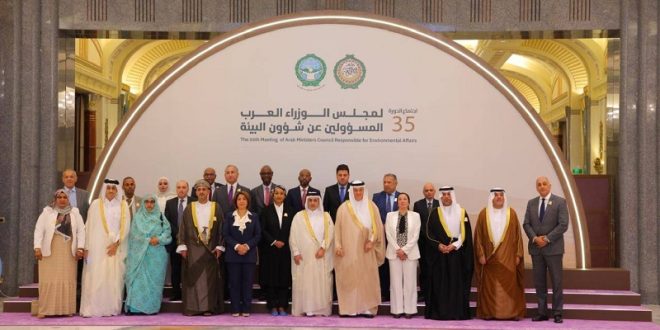The Kingdom of Saudi Arabia has been implementing an integrated environmental plan since 2016, and the results are starting to show. Riyadh is the first to acquire the title of Arab Environment Capital.
Likewise, by holding several environmental events and activities, Saudi Arabia promotes sustainability on both a local and global scale.
A Blueprint for Sustainable Development
In addition to focusing on waste management by nearly totally eradicating landfills by 2035, three important, interconnected sectors comprise the activities of the Saudi Ministry of Environment: agriculture, water, and the environment. The Kingdom’s Vision 2030 framework for improving sustainability encompasses all of these initiatives as a part of the integrated environmental plan.
Moreover, the percentage of natural reserve areas has increased from 4% in 2016 to 18% this year, with a focus on achieving 30% by 2030. This is one of the environmental initiatives that have been decided upon and put into action. The cloud seeding programme is one of the environmental initiatives performed by the Saudi Ministry of Environment. Its goal is to regulate the time and quantity of rainfall, which largely affects the water and agricultural sectors.
Additionally, the ministry created the Regional Centre for Dust Storms, which is ranked fourth globally due to the efficiency and uniqueness of its work. Along with creating the conditions necessary to support the achievement of biodiversity for living things and improving food and water security for humans, Saudi Arabia is working to prevent lands from deteriorating and reduce desertification, which contributes to the decline of vegetation cover, as part of its comprehensive environmental strategy.
Furthermore, this occurs by completing the environmental projects established by Saudi Arabia during its presidency of the G20 in 2020 and by supporting national and international efforts to safeguard agricultural lands and natural resources. In doing so, the Kingdom will fulfil its lofty objective of improving sustainability. The Kingdom’s efforts stem from its leadership’s understanding of the gravity of the water issue confronting the Arab world, which calls for decisive and realistic measures to address. As a result, the Kingdom has developed a comprehensive environmental policy.
The Saudi Leading Green Initiatives
Saudi Arabia has taken the initiative to hold environmental conferences that have included the parties to the Climate Change Convention, created fruitful outcomes, and initiated several programmes that have garnered worldwide support. The sixteenth session of the Conference of the Parties to Combat Desertification, or “COP 16,” will take place in the Kingdom next December. The agenda will cover important topics related to the Convention to Combat Desertification 2018–2030, as well as drought, dust, and sandstorms. 
All these initiatives, along with numerous others, inevitably led to Riyadh competing against ten other Arab cities and winning the title of Arab Environment Capital. Riyadh’s triumph came to light at the League of Arab States’ 35th Arab Environment Ministers Council conference in Jeddah, which sits on the Red Sea coast.
Meanwhile, Saudi Arabia also received the Saudi Green Initiative award for a noteworthy environmental initiative in the public sector, which was another achievement.
A Green Future for the Arab World
Working to increase the area of natural reserves in Arab nations and addressing climate change issues positively through many initiatives, activities, and efforts similar to Saudi Arabia were among the outcomes of the Arab Ministers’ Meeting.
Other outcomes included reviewing the results of international agreements and conferences in this area and attempting to comply with them, as well as developing interconnected policies that support the efforts made to develop the water and agriculture sectors and working to expand them through collaboration and cooperation to achieve success.
The Kingdom’s sustainability objectives serve as the main motivator for its initiatives in the integrated environmental plan and other fields, which validates Saudi Arabia’s resurgence in capabilities and its insistence on diversifying the economy’s focus away from extracted domestic resources, working to adopt renewable energy sources, and taking a green approach in all areas.
To sum up, Riyadh will continue to be the Arab Environment Capital for two years. During that time, it must carry out several Arab environmental programmes and activities, which are going to occur through a special electronic platform designed for this purpose. Additionally, it will be essential to allocate and hold many environmental events and activities, giving Saudi Arabia’s green efforts a regional dimension in addition to the local and international ones.